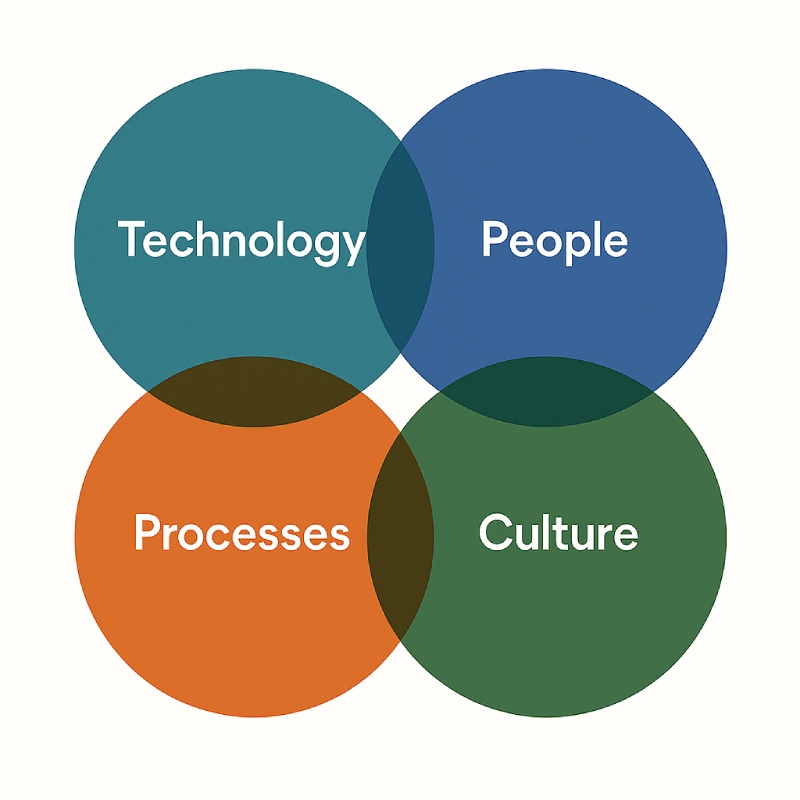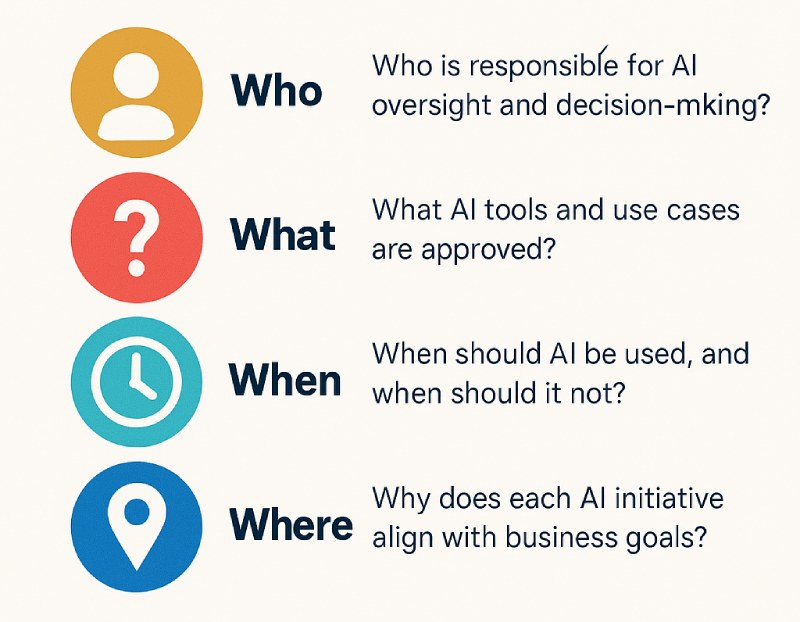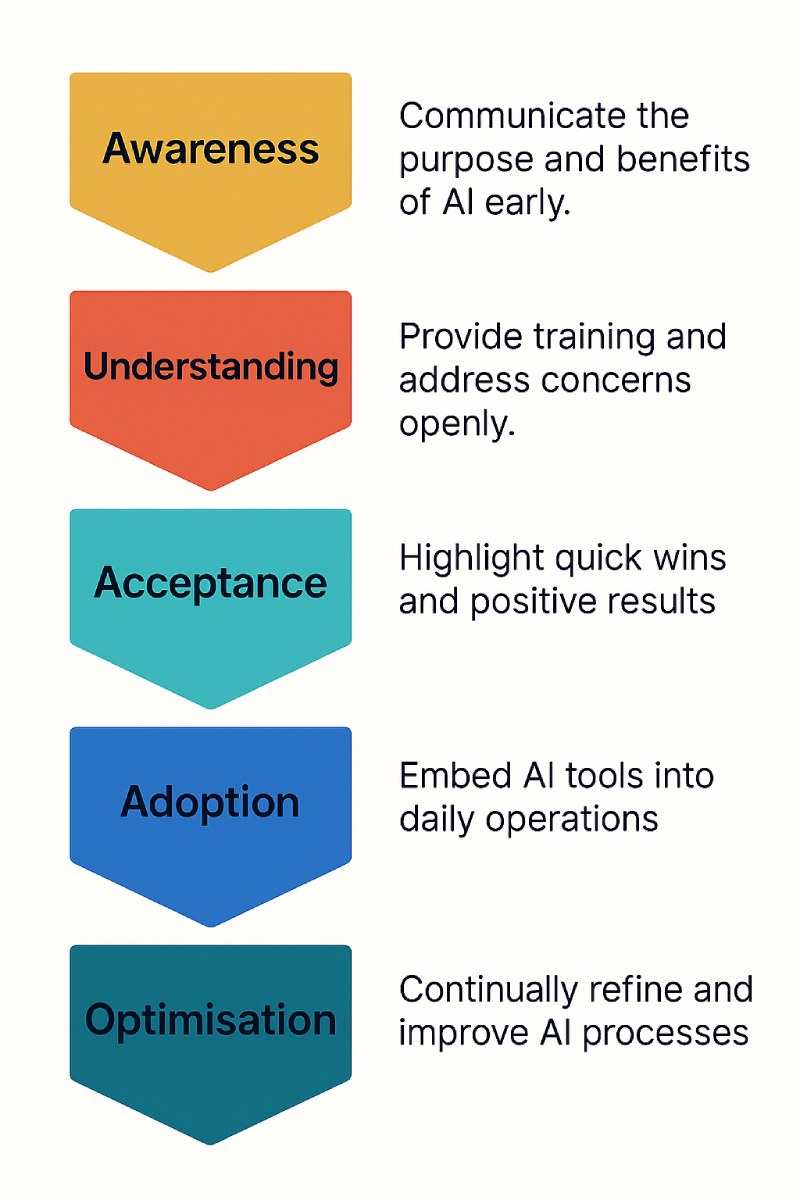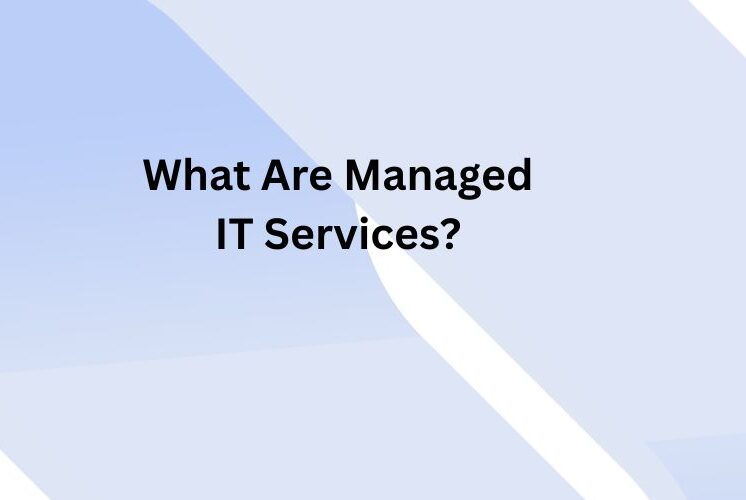AI Readiness: How to Prepare Your Business
Artificial intelligence (AI) is no longer an experimental technology. Across Australia, it’s becoming a standard tool for automating processes, uncovering insights, and creating new revenue streams. But here’s the reality, buying AI software won’t make your business AI-ready.
AI readiness means preparing your organisation strategically, technically, and culturally so AI delivers measurable value. It’s about getting your data in order, building strong governance, aligning teams, and fostering a culture open to change. When done right, AI readiness gives you a competitive edge, mitigates risks, and accelerates innovation.
AI readiness is your organisation’s ability to adopt, integrate, and scale AI solutions effectively. It’s about more than enthusiasm, it’s preparation across four interconnected areas:
- Technology – ensuring your systems and infrastructure can support AI workloads.
- People – giving your teams the skills, confidence, and willingness to work with AI.
- Processes – adapting workflows to integrate AI seamlessly.
- Culture – fostering an environment that values responsible innovation.
Eagerness may start the journey, but readiness determines whether AI delivers sustainable benefits.

Before committing resources, you need a clear view of your starting point. Use this AI readiness checklist to identify strengths and areas for improvement.
Area | Questions to Ask |
Digital infrastructure | Are systems modern, secure, and scalable? Is cloud infrastructure optimised for AI workloads? |
Data quality & accessibility | Is your data accurate, well-structured, and accessible across teams? |
Staff expertise & openness | Do employees understand AI’s potential? Are they open to adopting new tools and workflows? |
Policies & governance | Are there clear rules for data privacy, security, and responsible AI use? |
Tip: Score each area from 1–5. Focus first on areas with the lowest scores to maximise readiness.
AI runs on data, if it’s incomplete, inconsistent, or siloed, AI outputs will be unreliable. Strong data management is the foundation of AI success.
Steps to get AI-ready data
- Audit your data sources
- Identify what data you have, where it’s stored, and how it’s collected.
- Include both structured (databases) and unstructured (emails, documents) data.
- Clean and standardise
- Remove duplicates, fix errors, and use consistent formats and naming conventions.
- Standardisation improves data integration and model training.
- Establish governance
- Assign data owners for accountability.
- Implement access controls to follow the OAIC Australian Privacy Principles.
- Maintain a data catalogue and metadata schema for transparency.
- Monitor quality continuously
- Build automated checks for accuracy and completeness.
- Review data quality quarterly as part of ongoing operations.
Good data practices improve AI outcomes, and enhance decision-making across the business.
AI policies provide the guardrails for safe, ethical, and compliant use.
Use the 5Ws framework
A practical way to create robust policies is to answer the 5Ws:
- Who is responsible for AI oversight and decision-making?
- What AI tools and use cases are approved?
- When should AI be used, and when should it not?
- Where is data stored, processed, and shared?
- Why does each AI initiative align with business goals?

- Data privacy & security – Protect data in line with Australian regulations.
- Ethical AI use – Mitigate bias, ensure fairness, and keep decision-making transparent.
- Regulatory compliance – Follow relevant laws and industry codes.
- Roles & responsibilities – Assign accountability for AI monitoring, updates, and risk reporting.
Example policy statement:
“AI tools will be used to support, not replace, human decision-making. All AI outputs must be reviewed by the appropriate team before final decisions are made.”
Schedule regular policy reviews, AI evolves quickly, and rules must keep pace.
AI adoption changes workflows, job roles, and mindsets. Without structured change management, resistance can derail even the best-planned projects.
A phased approach to adoption
- Awareness – Communicate the purpose and benefits of AI early.
- Understanding – Provide training and address concerns openly.
- Acceptance – Highlight quick wins and positive results.
- Adoption – Embed AI tools into daily operations.
- Optimisation – Continually refine and improve AI processes.

Strategies for building a positive AI culture
- Communicate regularly and transparently.
- Provide role-specific training for both technical and non-technical staff.
- Encourage innovation with clear boundaries for risk.
- Recognise and reward successful AI-driven improvements.
Steps to create your AI roadmap
- Identify high-impact use cases – Choose areas with clear ROI potential, such as customer service automation or predictive maintenance.
- Set measurable objectives and KPIs – Examples: reduce processing time by 20%, improve forecast accuracy by 15%, or increase customer satisfaction scores.
- Plan phased implementation – Pilot → Controlled rollout → Full deployment.
- Assign resources – Budget for infrastructure, training, and governance.
- Collaborate across teams – Involve IT, operations, HR, and compliance from the outset.
AI implementation in SMEs
For small and medium-sized enterprises (SMEs), AI adoption can feel like a leap into the unknown. Budgets are tighter, teams are smaller, and any disruption can be felt immediately. But with the right approach, SMEs can implement AI in a way that drives value quickly, without overwhelming resources.
Start small, think big
Begin with one or two AI use cases that solve real problems or create immediate efficiency gains. Examples might include:
- Automating invoice processing and data entry.
- Using AI-powered chatbots to handle simple customer service queries.
- Introducing predictive analytics to forecast sales or inventory needs.
By proving value in a small, controlled setting, you can build confidence and make the case for scaling AI across the business.
Leverage existing tools
Many SMEs already use software platforms with built-in AI features, from CRMs that predict customer churn to accounting software that categorises expenses. Start by maximising these before investing in standalone AI systems.
Collaborate with trusted partners
External IT support and managed service providers can help with:
- Choosing the right tools.
- Ensuring compliance with privacy and data laws.
- Integrating AI with existing systems.
This reduces the technical burden on internal teams.
Keep the human touch
In smaller organisations, customer relationships and staff expertise are often a key differentiator. Use AI to enhance, not replace, these human strengths. For example, automate routine tasks so employees can focus on higher-value, relationship-driven work.
Measure and adapt
Set clear objectives and track results against them. Even in small deployments, monitor:
- Efficiency gains.
- Cost savings.
- Impact on customer satisfaction.
Regular reviews will help you fine-tune your AI use and spot new opportunities.
AI adoption comes with pitfalls, being aware of them helps you manage proactively.
Common risks
- Poor data quality – Leads to inaccurate outputs.
- Lack of skills – Reduces AI effectiveness and adoption.
- Weak policies – Increases legal and reputational risks.
- Shadow AI – Staff using unapproved tools, risking compliance breaches.
- Model drift – AI performance degrades over time without retraining.
- Vendor lock-in – Over-reliance on one AI provider.
Mitigation strategies
- Implement a zero-trust approach for data access.
- Review and retrain AI models regularly.
- Maintain multiple vendor relationships where possible.
- Keep policies current and enforceable.
Start improving AI readiness today:
- Complete the AI readiness checklist.
- Prioritise low-scoring areas.
- Assign owners for each readiness task.
- Research AI tools relevant to your industry.
- Draft or update your AI policy using the 5Ws framework.
Conclusion
AI can give your business a significant competitive edge, but only if you’re prepared. By focusing on data readiness, governance, and change management, you’ll create the conditions for AI to deliver value in a sustainable, ethical way.
The businesses that invest in readiness today will be leading their industries tomorrow.
To learn how our managed IT services can help you prepare for and adopt AI successfully, explore our full range of solutions.
FAQs
What is AI readiness in business?AI readiness is your organisation’s ability to successfully adopt, integrate, and scale AI tools, covering technology, data, governance, processes, and culture.
How do I know if my business is ready for AI?Run an AI readiness checklist to assess infrastructure, data quality, staff expertise, and governance policies.
What policies should we have before adopting AI?At minimum: data privacy, ethical use, compliance, and role-based responsibilities, structured using the 5Ws framework.
What is the biggest barrier to AI adoption?Poor data quality and lack of staff skills are common barriers; both can be addressed with proper planning and training.


